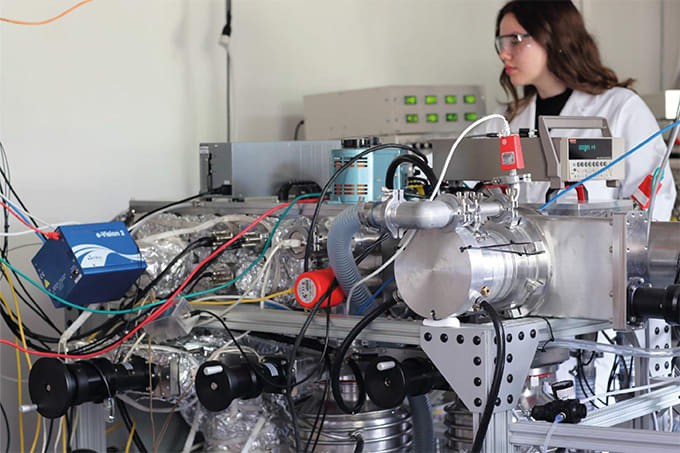If you think about how (bio)therapeutics work, you will immediately note that interactions – either between proteins or proteins and other molecules – are key. Those interactions are enabled by the protein’s conformation, which not only imbues each protein’s unique functionality but can also change depending on the conditions in which it exists. We now acknowledge that proteins do not function alone and, therefore, should not be considered as isolated entities, but as part of complex networks that ultimately drive biological systems.
Now, let’s think about how we analyze proteins. Does the protein typically exist in its native state when we study it? Are we getting a “true picture?” Techniques that rely on denaturation or digestion – or where the molecules must interact with a surface or matrix (or are fixed to a surface) – affect protein conformation (or the ensemble of conformations), which means that we are actually testing a proxy of the native solution-state protein. Indeed, the dominant techniques for measuring protein-protein interactions, such as surface plasmon resonance (SPR) or bio-layer interferometry (BLI), rely upon fixing a protein to a surface to detect binding to an interaction partner, and thus may not be an accurate representation of the interaction in the biological system.
This is the challenge we want to address at Fluidic Analytics. We want to study protein interactions with as little interference as possible. In the pursuit of this challenge we investigated the use of microfluidic technology. But first, a little background.

The fundamental principle of microfluidic diffusional sizing (MDS) came out of Tuomas Knowles’ lab at the University of Cambridge. The team realized the potential of the technique in allowing native state analysis of proteins and protein complexes with high accuracy down to low concentrations. The original findings were published by Yates and colleagues back in 2015 (1).
Even in 2019, there are relatively few off-the-shelf microfluidic instruments, so most research takes place on home-built rigs with custom chips, making it the domain of experts with specialist equipment. And athough reduced sample consumption is beneficial, the small volumes and pathlengths used in microfluidic devices can create challenges around detection sensitivity. Reproducibility can be another key issue, which is why there’s a movement towards standardized instruments. By standardizing the technology, researchers can harness all the benefits of microfluidics, without the headaches and time-consuming process of chasing reproducibility.
Fluidic Analytics was spun out to develop Knowles’ original concept into microfluidic instruments that would allow anybody to achieve accurate and reproducible results with MDS in a “plug and play” format.
There are a number of benefits to a microfluidic system. We’ve already mentioned the first two obvious advantages: reduced sample consumption and greater reproducibility – both crucial to reliably gaining insights from precious samples at the early stages of development. However, there are further benefits to MDS that are more fundamental.
At the microfluidic scale, fluids behave differently than they do in bulk. MDS actively harnesses this fundamentally different behavior to eliminate turbulence. This allows proteins to be characterized in solution, without artefacts and in a manner that preserves information about physical properties – which in turn yields critical information about protein interactions. This means that you can assess if a peptide-based biotherapeutic is suddenly getting bigger, for example. If the biotherapeutic’s size has changed substantially then it’s likely to be binding to a target. You can also assess if this change in size is happening at specific concentrations. We can then look at the binding constant for this interaction and check if the stoichiometry data suggests the peptide is binding to one target or more and if one is being favored over the others – allowing you to spot different mechanisms of binding.
In other words, we are bringing scientists a step closer to being able to study notoriously difficult membrane proteins and intrinsically disordered proteins in as close to a native state as possible, by generating binding affinity and stoichiometry data in real time.
As a field, microfluidics is still growing – particularly in its application to analysis of proteins. Current systems are limited in what they can analyze; for example, we may only be able to separate a mixture based on a single characteristic. But, over time, I expect to see that changing, with microfluidic systems being used for more complex manipulations or separations that offer deeper insight.
One thing seems certain: with the right tools, researchers will be able to look beyond individual proteins – even beyond individual interactions. And if they can observe the rich interplay of the proteome, they are another step closer to developing a deep, system-wide understanding of biological complexity. In turn, our ability to comprehend the full impact of perturbing these biological systems improves, which supports the development of more selective treatments.
Technology that allows us to explore proteins and antibodies binding and interacting with a host of other molecules with minimal interference helps unlock a deeper level of understanding. In turn, this may start to change the way we think about proteins – and biotherapeutics – altogether.
References
- EV Yates et al., Nat Chem, 7, 802 (2015). DOI: 10.1038/nchem.2344




